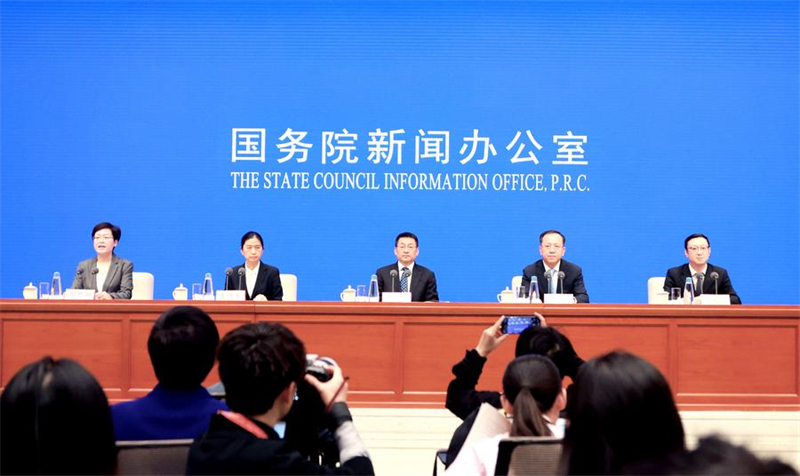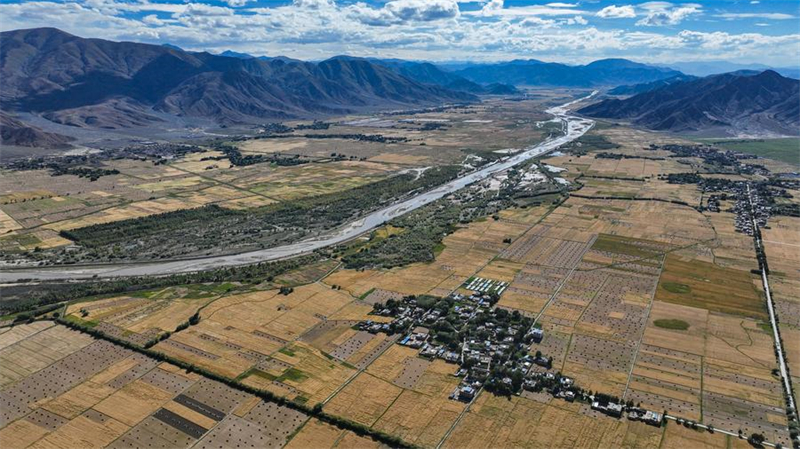
BEIJING, Nov. 29 -- China has steadily promoted the development of rural transport infrastructure over the past decade, facilitating rural revitalization and contributing to global development.
China has already put in place a rural transport infrastructure network, where county roads connect rural and urban areas, township roads crisscross, and village roads facilitate travel between households and farmland, according to a white paper released by China's State Council Information Office on Friday.
The white paper, titled "China's Rural Roads in the New Era," stated that the total length of rural roads in China had reached 4.6 million km by the end of 2023, an increase of 21.7 percent over 2013, enough to circle the equator 115 times.
China's rural roads constitute the most extensive transport infrastructure in the country and serve a significant majority of the population. These roads serve as primary transportation channels for rural residents, playing a crucial role in enhancing their well-being and living conditions. They are also instrumental in advancing the modernization of agriculture and rural areas.
According to the white paper, China has made notable achievements in rural road construction over the past 10 years, with increased total length, rising technical standards and better accessibility.

Data showed that graded rural roads in the country amounted to 4.45 million km, with its share in total rural roads up 11.9 percentage points over the past decade. Meanwhile, paved roads have been built in about 30,000 towns and townships and over 500,000 administrative villages.
China has intensified financial support for rural roads, with a total of 4.3 trillion yuan (about 598 billion U.S. dollars) invested in rural road fixed assets over the past 10 years, Vice Minister of Transport Li Yang told a press conference Friday.
"The country has gradually established a funding mechanism for rural road development, primarily relying on public finance investment and complemented by multiple channels," Li said.
In particular, Li highlighted China's efforts to accelerate the integration of rural passenger transport, freight transport, and mail delivery. He noted that this approach has linked rural road construction with tourism, ecological development and economic growth, effectively boosting farmers' incomes.
Data from the white paper showed that by the end of 2023, local authorities had built 1,267 county-level delivery centers, making use of passenger and freight hubs, mail and delivery processing sites, the storage and logistics facilities of supply and marketing cooperatives, and e-commerce warehouses.

While stepping up efforts to improve rural road infrastructure, China has also shared its development experience and helped construct rural road infrastructure in other developing countries. This has substantially contributed to poverty reduction, people's well-being and sustainable global development, the white paper said.
The country has established the Global Sustainable Transport Innovation and Knowledge Center as a platform for cooperation and exchanges and for sharing China's experience in rural road development with the international community, according to the white paper.
Since 2018, China has supported 24 developing countries including Cambodia, Serbia, Rwanda, Namibia, Vanuatu and Niger in highway and bridge construction and maintenance, helping them improve their transport infrastructure.
With its rural transport infrastructure entering the high-quality development stage, China now plans to launch a fresh round of rural road upgrades, according to Li.
China will further strengthen rural road construction to promote the industrial upgrading and integrated development of transport infrastructure with sectors like tourism, as part of efforts to advance comprehensive rural revitalization, Li said.
He said transport services will also see improvements, with measures put in place to optimize logistics services and enhance the integrated development of passenger, freight, and postal services in rural areas.
Measures will be taken to encourage more people to work on rural road construction and maintenance projects, create more job opportunities, and improve the sense of gain, happiness and security among farmers, Li said.